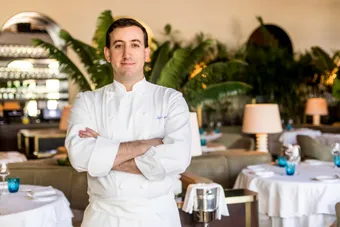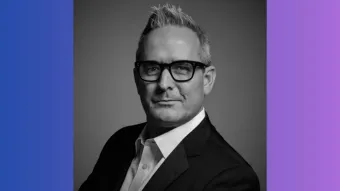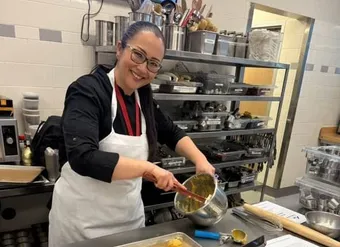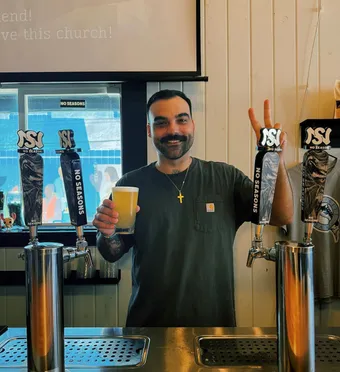Juan Fortunato started as a dishwasher and worked his way up to become a Head Chef before leaving the restaurant world. Now, he's a culinary nomad, traveling the globe and cooking dishes influenced by local cultures, all while building his social media presence.
We at OysterLink recently sat down with Chef Juan Fortunato to talk about his journey.
Could you introduce yourself and tell us about your career path?
Juan Fortunato: I'm a professional Chef; I studied nutrition first, and then I moved to the kitchen, starting as a dishwasher and eventually becoming head chef in an Argentinian restaurant. In the restaurant, it can be very demanding. So, we can't really be out there, let's say traveling or anything like that; there is a lot of pressure. So I decided to change my lifestyle a little bit. And well, I ended up basically quitting that Head Chef position. And in the end, I tried to start my own project right now.
Are you a nomadic chef now?
Juan Fortunato: Yeah, actually, because I was so stuck inside in the kitchen, I forgot about the amazing things in life basically. And one of them is, let's say, traveling. Because it is very difficult to take some holidays while you're in the kitchen while you're a professional chef.
It's always very hard to cover your position, so you need to maybe find freelancers or something like that. So for a restaurant, it can be very costly. So I sort of forgot about taking holidays or taking pleasure in my life. And when I actually decided to quit the restaurant, I thought, you know what, I have all the time in the world right now. Not all the time in the world, but I have most of the time in the world, and I thought, why not go traveling, because that's exactly why I quit the restaurant to be able to enjoy other aspects in my life. Well, I basically quit in December, and then in January, I started traveling around a little bit; this helped me a lot to get a lot of inspiration for dishes and in cooking, and in ideas for my future.
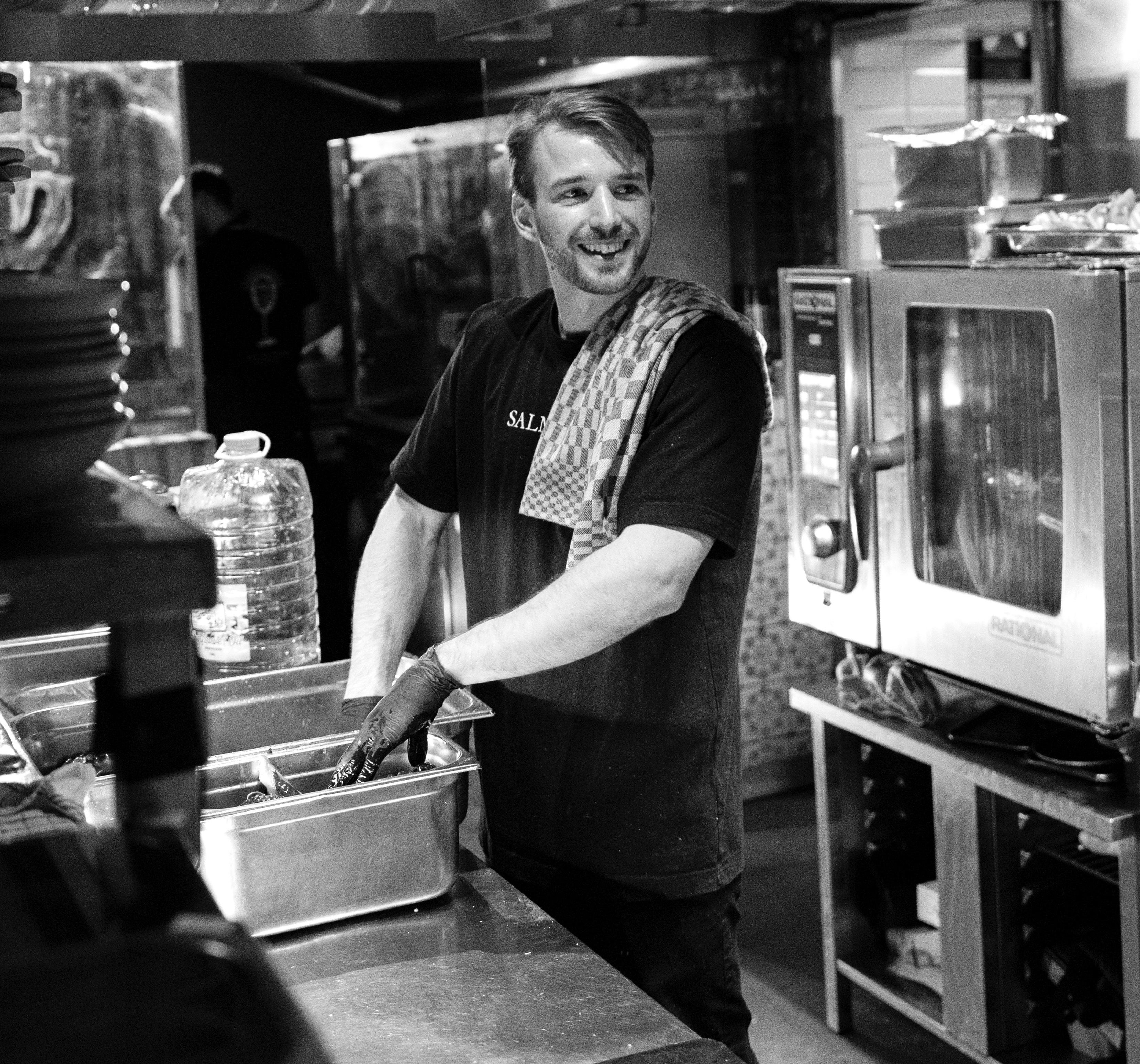
How did you transition from a Dishwasher to a Head Chef?
Juan Fortunato: When I was studying, I started getting some sort of interest in the kitchen. And that's when I started doing the dishwashing. In the middle of my studies, I was about to just quit the entire study, but then I thought, okay, like, let me just finish my study. Let me get that diploma, and then I will figure out what's going to happen after that.
And well, when I finished my studies, I tried to do something related to nutrition, which I wouldn't say failed, but just like made me realize that I was interested in something else. And that's when I actually went in full-time in the kitchen.
And I was working in a pub in the middle of Amsterdam, and I was just doing the dishes, and I would finish the dishes as quickly as possible to jump into the kitchen and actually help out the chefs.
They really saw my drive, and of course, it is a pub, and like nobody expects any dishwasher to do anything. And eventually, I just jumped out of the dishwashing and I started helping in the kitchen. And then after that, I said, you know what, let me find something else, let me progress in my career because this is exactly what I want to do.
That's when I started going from restaurant to restaurant, like door to door, asking if people needed a job.
Well, in fact, some other chefs were like really surprised at this approach because not everybody does this. Usually, they just hand in their CV and that's it, or send an email or whatever. But I was really there, like knocking on the door, asking if I could work for them. In fact, I walked into this restaurant, which now has two Michelin stars. But at the beginning, they were just opening. So I had no clue what I was walking into, and I just went up to them. I was like, Hey, I just want to work here. I want to work in the kitchen, but I have no experience. Unfortunately, they didn't have space, but you know, they really appreciated that approach.
Have you studied anything else besides nutrition?
Juan Fortunato: So I studied nutrition, and when I started in that one restaurant, they offered to pay for my studies as a Chef. I did my culinary degree there. I got the diploma, so I'm a certified Chef, let's say.
I would say the diploma for a Chef helps a lot if you want to get some sort of position. It helps you understand the basics and the base of everything in the kitchen. But I do believe that you do learn a lot in the kitchen itself, like putting yourself into practice.
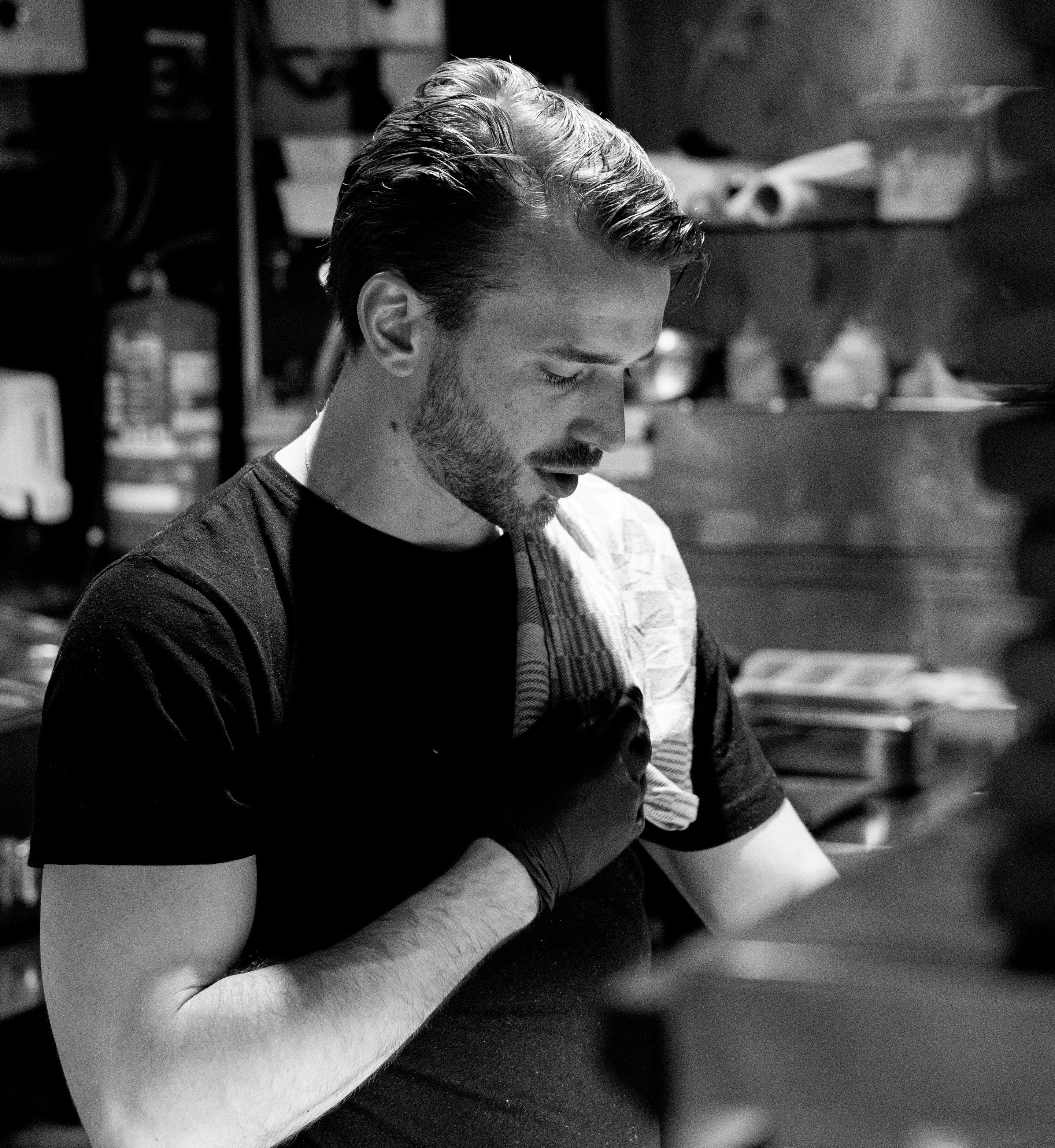
Can you name some of the countries you have been to since you started travelling?
Juan Fortunato: So, from the beginning of January, I traveled to Spain, to Madrid. I have some family there, so I went to visit. Then I went to Mallorca, which I loved. It's an amazing place. Then I went to Belgium. I went to Paris, France. I've been to Norway, Sweden.
Well, now I'm back here in Mallorca again. Based on this, I began to get a lot of inspiration on what to do. And since I'm running like a social media account, cooking. I'm focusing a little bit on the nutritional side of fine dining experiences.
I recently just made a mini series called The Chef Without Borders, and basically, I go to different countries and then I get inspired by their food culture, and I make a dish, I present it, and I show different cooking techniques, which can be very interesting for chefs.
Because I believe that when you are a chef and you want to come up with a dish, you're stuck with your own techniques that you've learned in the past and your past experiences. But maybe you're missing out on other experiences that other chefs have. So in different restaurants, I would say that they have their own different type of techniques, which makes a signature for each different chef. And this is what I'm trying to portray, showing techniques and, at the same time, making dishes that are gourmet or fine dining and that are health-conscious.
Do you also expect to go to other destinations, like in Asia or Africa, or the Middle East?
Juan Fortunato: Well, for sure. Actually, you asked me earlier what I was doing right now, and I'm actually working part-time in the restaurant because I need to sustain myself, of course. My project hasn't shot off yet, but it's going in the right direction, which I'm positive about. So, considering the fact that I'm doing part-time, I can only take a few days out of the country. And those are the times where I choose closer destinations basically, but I am definitely very interested in the cuisine in Asia, which I think has thousands of flavor combinations. In fact, I did work in a Chinese fusion restaurant, and there you learn so much about the flavors because there are things that nobody thinks of, and I feel like in Europe it's quite more basic or traditional.
I'm super open to any type of cuisine. I would love to travel a little bit more. I'm also thinking of the next places where I want to go and hopefully create some content or get some more inspiration and see what I can get out of there. And of course, I'm doing this because I enjoy it. But if this turns into something more than just a social media thing, it could be amazing. If it's something that I can make a living out of, then that would be amazing.
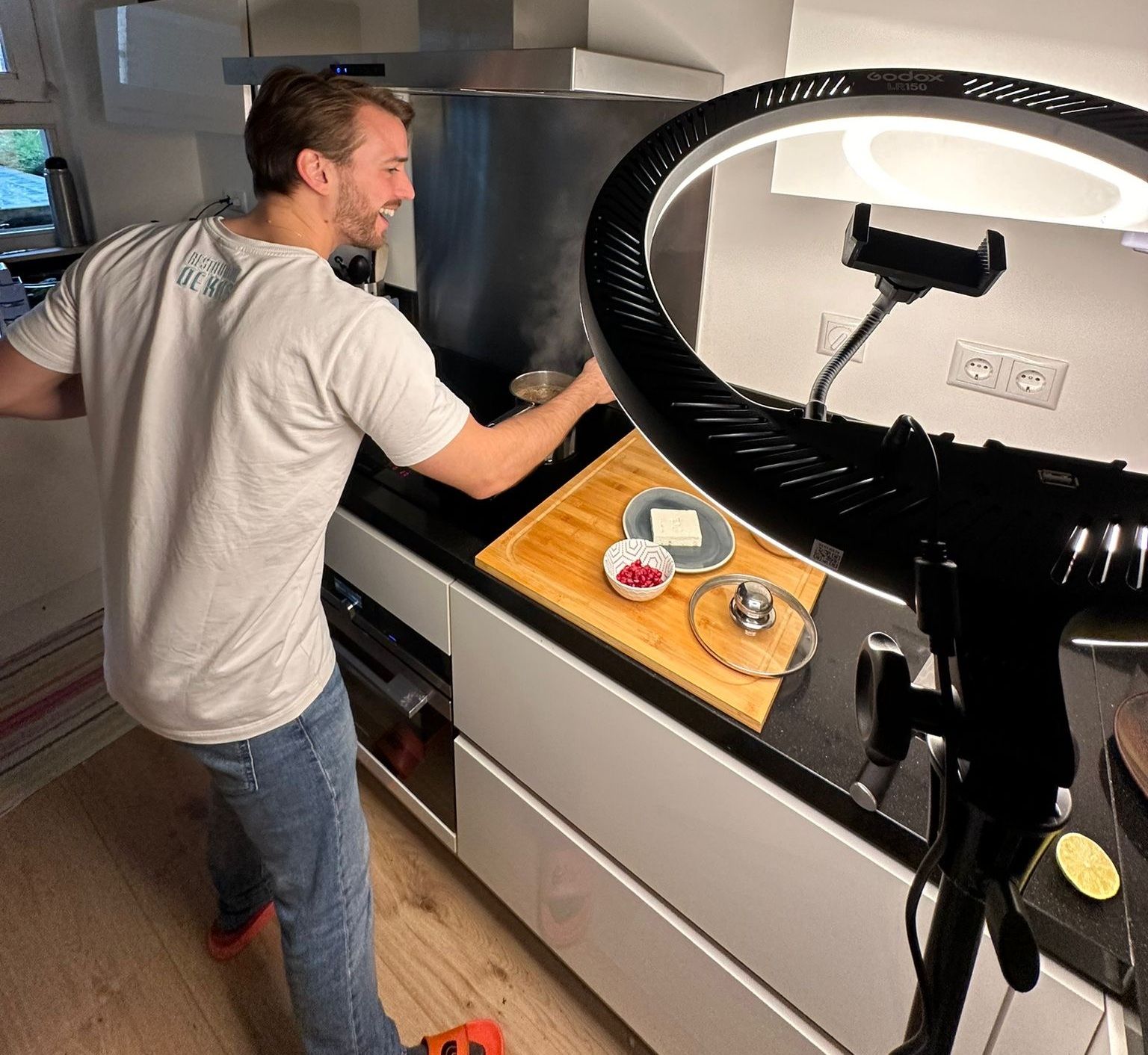
Besides “Chef Without Borders,” you started another show, “Broke But Bougie.” What’s the concept for the second one?
Juan Fortunato: Broke But Bougie is a collaboration with another friend of mine, shout out to Fernie Scheffing. He actually had the idea to collaborate together, and he approached me, and we came up with this idea called Broke But Bougie, which is quite self-explanatory, but for those that do not understand, it is a concept where we make a fine dining experience on a budget.
And of course, I add my twist to it, where it's the health-conscious side. We came up with four different dishes that are very refined, and well, this actually shot off quite a lot. We got a lot of views in one of the videos, and that just like helped us out a lot.
And at the end of that whole filming process, we decided to do a fine dining experience for a close group. Of course, the first dinner was with some friends, close friends. And thanks to this, we decided to do a second season. Fernie came up with it, and then I said, Yeah, let's do it. And well, now we filmed the second season and we're about to release it in September.
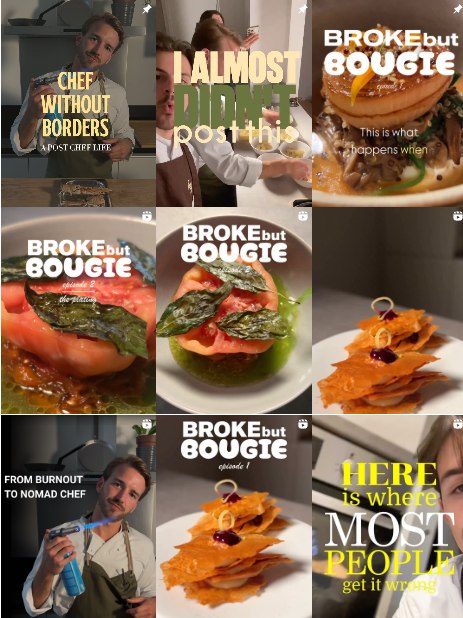
Do you think that traveling as a chef and building your social media presence could become a sustainable source of income?
Juan Fortunato: I think it is possible because you also have a lot of people who are basically living off this. I'm not sure where this social media account is going to take me, but I do enjoy sharing my knowledge with the rest of the people. And it's something that has no restrictions at all.
Because nobody's telling me what they're expecting and what kind of dish they want me to cook or whatever. It's more than I'm saying, okay, today I'm just going to cook this, I'm going to post it, and hopefully people will enjoy it.
And well, I believe that's also something that people appreciate more when they see something that is more genuine, and it's not made for somebody else.
I think when you make something that's coming from inside them, that's a bit more entertaining, and people can maybe connect a bit more to it. And I mean, I would love it to shoot off. Would love it to be able to live off this. I think there are a lot of brands that can approach us and offer us collaboration, which means a way to monetize it.
But I mean, for now, I'm mostly figuring out exactly which path I want to take. And slowly, like since the beginning of this project, things completely changed. And now I'm, you know, focusing myself more on the chef side of things because the type of dishes that I present are quite complex. It's not something that somebody at home would regularly do.
Do you still dream of opening your own restaurant?
Juan Fortunato: Actually, on my first interview at the first restaurant they asked me what I wanted to do and I knew what I wanted to do and I so knew that I just wanted to be in the kitchen that I said straight to them that I wanted to have a restaurant and I knew exactly what I wanted to have like a restaurant with dim lights, live music, some jazz music. Maybe a bar where people could have their whiskey and enjoy the music and a little bit of snacks, more like a refined kind of dishes. And that was so clear in my head. Well, of course, little did I know that, you know, you have to sacrifice so much for it that, well, as I progressed along my career, I started to realize that, you know, maybe at this moment I wasn't ready for it.
And I don't know, I believe there's such a high sacrifice that I am not ready right now to have this. But you know, it is still in the back of my head where I would be thinking, you know, maybe if this project shoots off, then eventually I could have a brand where that would allow me to open a restaurant, and I could say, you know what? I'll open my JMF restaurant or whatever I want to call it. And well, maybe that dream can come true eventually. But what I am sure of is that I do not want to be on the weekends all night there. But I would say that maybe I would have, I would be more of a restaurant owner rather than an employee of the restaurant.
Check out more interviews like this brought to you by OysterLink, or get them straight to your email by creating an OysterLink account and joining our newsletter.
